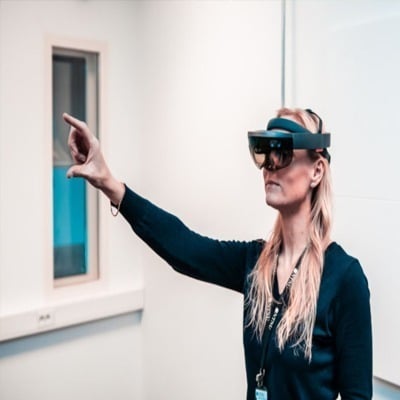
It’s difficult to see people living their lives in virtual reality when the experience consists of swinging your arms around in the middle of the room while wearing a gadget the size of a house brick strapped to your face.
But, according to philosopher David Chalmers, who advocates accepting fate, this is where mankind is headed. As technology advances, virtual worlds will match, and ultimately exceed, the actual universe. And, with endless, compelling experiences at his disposal, he believes the tangible world may lose its charm.
In his latest book, Reality+, Chalmers, an Australian professor of philosophy and neuroscience at New York University, makes the case for embracing VR. Chalmers, known for defining “the hard issue” of consciousness – which inspired Tom Stoppard’s play of the same name – sees technology progressing to the point where virtual and physical are sensorily the same and people live good lives in virtual reality.
“A prevalent misconception regarding virtual realities is that they are phony realities, that what you see in VR isn’t genuine. “I believe that is incorrect,” he told the Guardian. “The virtual worlds with which we engage can be as real as our physical reality.” “Virtual reality is the actual thing.”
It all began with the French philosopher René Descartes, as these things often do. Chalmers was thinking about how we possibly know anything about the outside world. Modern philosophy frequently reframes this as a Matrix-style quandary: how can we be certain we are not in a simulation? To cut to the chase, Chalmers adds, “We can’t.”
All of this points to virtual reality. Chalmers believes that in the next decades, we will abandon bulky headgear in favor of brain-computer interfaces, or BCIs, which will allow us to experience virtual worlds with our complete range of sensations. With breakthroughs in computers – possibly in the next century – such worlds will appear as real as the actual world around us.
On the philosophical front, Chalmers contends that even today’s virtual worlds are “real.” He claims that a chat in VR is the same as a real conversation. He claims that the items in the virtual worlds are also real, but formed of bits rather than quarks and electrons. As virtual worlds become more rich and realistic, we will form virtual communities, take on virtual occupations, and have motives, wants, and objectives that will manifest in those settings. “Most of the things that make life worthwhile will be present in virtual worlds,” he claims. “There’s no reason to believe that exists in virtual reality will be pointless or worthless.”
But how does this affect the physical world? “We’re fairly definitely going to be grounded on physical reality in the short run, and I wouldn’t propose abandoning it,” Chalmers adds. “However, in the long run, it’s plausible to foresee individuals spending the majority of their time within virtual reality.” He says that the pursuit of the physical might become a novelty or an obsession.
He warns that there are several hazards to be aware of. People will need actual food, drink, and exercise, as well as the occasional glimpse of sunshine, to keep their bodies from withering away, no matter how satisfying virtual worlds develop. The consequences may be insignificant for decades, according to Chalmers, but a steady shift toward virtual living may eventually pose new health concerns.
In the book, he offers many attractions that will entice individuals to use VR. These are worlds in which people can have superhuman skills, occupy other bodies, experience new sensations, and explore environments that have their own set of physical constraints. Everyone may have a virtual house or perhaps a virtual planet with practically endless space. And, he believes that if the physical world deteriorates drastically — through environmental collapse, nuclear war, or an interminable disease – VR may provide a safe haven.
However, Chalmers acknowledges that the appeal of virtual reality may lead to widespread neglect. Would the urgency of climate change and other physical-world problems wane? He thinks that this would be disastrous: “Physical reality is crucial; we must be based on it and handles it appropriately.”
These aren’t the only concerns that need to be addressed. Corporations own virtual worlds because they desire a return on their investment. Facebook relaunched itself, Meta, in October, reflecting its aim to control the “metaverse,” the virtual realm in which it wants people to work and play. Frances Haugen, a Facebook whistleblower, has expressed grave worries about increased monitoring and data collection in the metaverse. She also claims that there is a potential for psychological harm: if we are better beautiful, have better clothing, and a nicer house in the metaverse, how would we feel when we leave?
“If corporations govern virtual worlds, as they appear to be right now, would this lead to possibly dystopian realities in which corporations control everything in our environments? “I think there are obvious grounds to be concerned,” Chalmers adds.
It is doubtful that everyone will flock to VR, and some individuals, according to Chalmers, will still prefer physicality.
“Interacting in our original biological form may provide a sense of authenticity.” “However, it’s difficult to understand why the difference between a meaningful existence and a pointless life,” he adds. “In the long run, virtual worlds may have most of the benefits of the nonvirtual world.” Given all of how virtual worlds may outperform the nonvirtual world, living in virtual worlds will frequently be the better option.”
